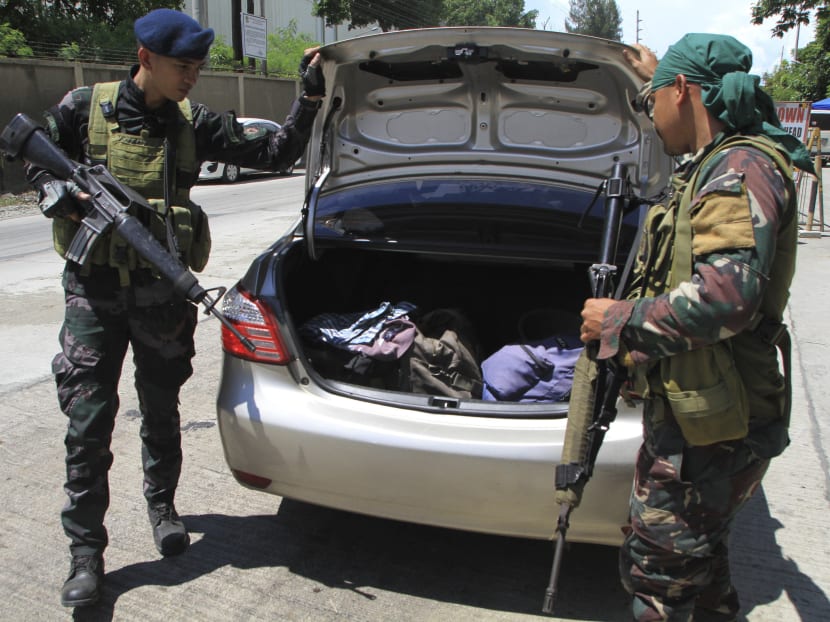Malaysia to tighten borders after Duterte announces martial law: Report
KUALA LUMPUR — Following Philippine President Rodrigo Duterte’s declaration of martial law on Wednesday (May 24), Malaysia has said that security along its borders, particularly the waters that are adjacent to the Philippines, will be tightened.

Soldiers search vehicles of fleeing residents at a checkpoint following the siege by Muslim militants in the outskirts of Marawi city in southern Philippines on Wednesday (May 24). Photo: AP
KUALA LUMPUR — Following Philippine President Rodrigo Duterte’s declaration of martial law on Wednesday (May 24), Malaysia has said that security along its borders, particularly the waters that are adjacent to the Philippines, will be tightened.
According to a report by the country’s news agency Bernama, Malaysia’s Inspector-General of Police Khalid Abu Bakar said that the country had “taken precautions, and are always beware of what is happening in neighbouring country Philippines”.
Mr Khalid, however, said the department would not be increasing the number of personnel that would be required for the task, the report added.
The Philippine military had ordered more than 200,000 people in the city of Marawi in Mindanao to leave their homes before 1pm on Thursday, shortly after martial law was announced in the region, due to clashes between the Philippine army and terrorist organisations such as Islamic State and its affiliates.
Mr Duterte had said that it could take up to a year before martial law in Mindanao could be lifted, if such a length of time was required to stop terrorism in that country.
According to the Bernama report, a local resident said most residents had obeyed the military order and had moved to the neighbouring cities of Zamboanga, Pagadian and Cotabato.
The resident, who had asked to remain anonymous, also said that there were many roadblocks put up by the military and that security checks had been set up along the roads in order to identify militants, who are reportedly mainly from Islamic State and Abu Sayyaf. AGENCIES






